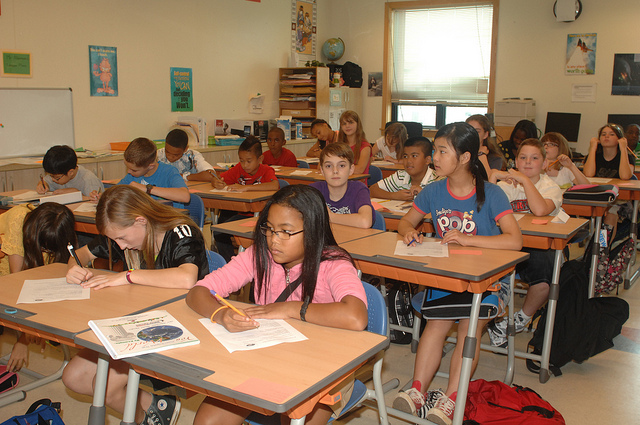17 Ways to Motivate Students Not to Make Inappropriate Comments to Peers

Are you looking for ways to motivate students not to make inappropriate comments to peers? If so, keep reading.
1. Urge the learner to interact with others.
2. Make sure that your remarks to the learner are in the form of constructive criticism rather than criticism that can be perceived as personal, menacing, etc. (e.g., instead of saying, “You always make the same mistake.” say, “A better way to do that might be . . .” ).
3. Let the learner voice their opinion in a situation to avoid becoming angry or upset.
4. Give the learner a quiet space to work. This should be used as a way to lessen distractions, not as a punishment.
5. Make sure the learner recognizes unacceptable remarks (e.g., call attention to the remarks when they happen, record each instance, terminate the learning experience when the comment occurs, etc.).
6. Praise the learner for communicating appropriately with other students: (a) give the learner a concrete reward (e.g., privileges such as leading the line, handing out learning materials, 10 minutes of free time, etc.) or (b) give the learner an informal reward (e.g., praise, handshake, smile, etc.).
7. Make the learner aware of the number of times they make unacceptable remarks and unnecessary noises.
8. Teach the learner appropriate words or phrases to use in situations of anger, stress, frustration, etc.
9. Alter or adjust situations that contribute to the learner’s use of obscene or profane language (e.g., if a task causes the learner to become upset, modify the task to a level at that the learner can be successful).
10. Stop annoying or anxiety producing situations from happening (e.g., give the learner tasks only on their capacity and ability level, give the learner only the number of tasks that they can successfully manage in one sitting, lessen social interactions that encourage the learner’s use of obscene language, etc.).
11. Give frequent chances for the learner to meet new people.
12. Attempt several groupings to ascertain the situation in which the learner is most successful.
13. Praise those students in the classroom who connect appropriately with teachers and other students.
14. Provide a predetermined signal (e.g., hand signal, oral signal, etc.) when the learner begins to use unacceptable language.
15. Make sure that positive reinforcement is not inadvertently given for unacceptable language (e.g., paying attention to the learner only when they are using profane or obscene language).
16. Consider using an adaptive behavior management app. Click here to view a list of apps that we recommend.
17. Click here to learn about six bonus strategies for challenging problem behaviors and mastering classroom management.






